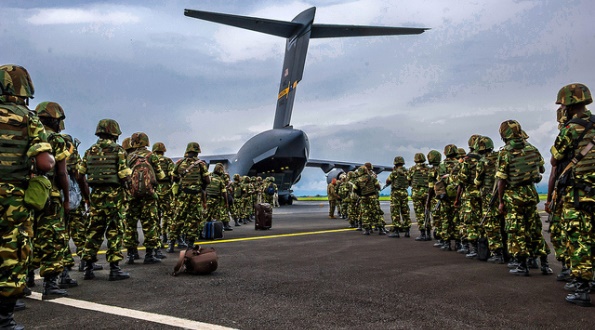BECOME A MEMBER
>JOIN
UK House of Lords Asks About UK Government Response to Situation in Central African Republic

Last Thursday, the UK House of Lords briefly discussed the situation in the Central African Republic. The discussion was initiated by Baroness Berridge who asked the UK government what is their response to the failure of the transition government and the growing crisis in the Central African Republic.
PN member Dr. John Sentamu, the Archbishop of York, asked the House of Lords to acknowledge “that the scale of the crisis is very large”, and warned it could lead to genocide if nothing was done.
“I am grateful for what the Government are doing in response to this particular crisis, but will they use their offices in the European Union to make sure that all nations take part in dealing with this rather appalling situation?”, he asked. “I am not confident that the African Union actually has the capacity to deal with the situation, much as it is on the ground. I hope the Minister can give us some comfort by confirming that the Government are talking to our European allies to ensure that whatever is needed is provided.“
Baroness Warsi, the Senior Minister of State, Department for Communities and Local Government & Foreign and Commonwealth Office, responded that, “an options paper has been circulated which is currently under discussion” and that the government is “going back to the United Nations Security Council Resolution 2127 from December, which agreed that it was appropriate for the African Union to lead on this and for the French troops to carry on with their deployment.”
PN member Lord McConnell of Glenscorrodale pointed out the “need for action afterwards, following any stabilisation, both to build the capacity of the state in the Central African Republic and to try to promote reconciliation between the Christian and Muslim communities, which at the moment are tearing each other apart.” State building and reconciliation will be very important in the aftermath of the current crisis, he said, and was wondering whether “the Conflict Pool or the Building Stability Overseas Strategy of the UK Government [can] make a contribution”.
For Baroness Warsi, the current priority is to “deal with the immediate violence.” Despite the transitional appointments of the president and prime minister, and the prospect of elections within 18 months of April last year, the violence has not stopped under the transitional government.
Therefore, the transitional parliament wants to make a decision on a new interim president on Monday, January 20, 2014, and by February 2015, further elections should take place “with a process behind them for political discussions”, said Baroness Warsi. “It may well be that at that stage, it will be right for the UK to be involved in the stabilisation work”, she concluded.
Source: UK Parliament Homepage.
For more information about the candidates running for interim president, please click here.
For more background information, please click here.

